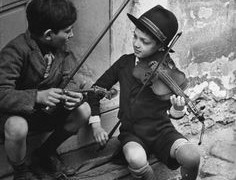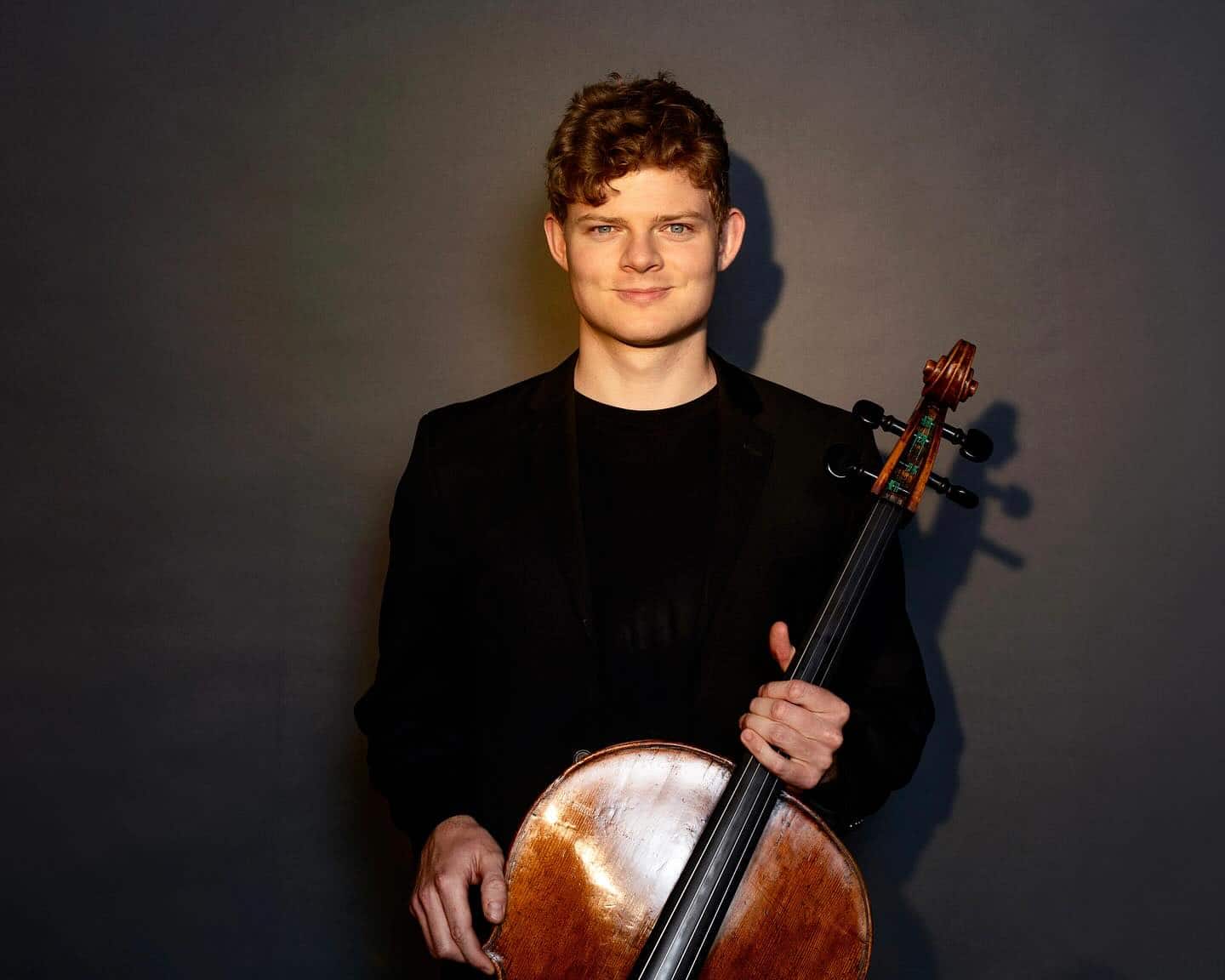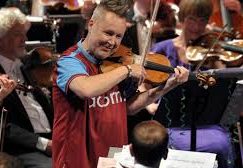8 reasons why your child is giving up music
UncategorizedA teacher suggests how you can stop them. Click here.


A teacher suggests how you can stop them. Click here.

Colleagues are mourning the sudden death of the…

Singers’ agents tell us of a tsunami of…

The young German musician Till Schuler has won…

The British bad-boy violinist, 68 next week, has…

Session expired
Please log in again. The login page will open in a new tab. After logging in you can close it and return to this page.
What’s ironic to me is that these arguments are nearly identical to the theory posited by American sports commentators why American children are not drawn to baseball, anymore.
Activities that require less patience,less practice,less time, less thought and are more imediately rewarding demand the attention of an ever growing population in America. Equally important is the fact that learning music and baseball both require the fortitude and patience to overcome major obstacles that involve low rates of imediate success.
Both baseball and classical western music are dominated by cultures that are more recently introduced to them. Asian students far outnumber any other culture/nationality at conservatories and Latin players dominate play in baseball. It seems that the reasons for this are disparate.
That lack of patience and application is wider spread that just American, I feel. It explains, however, things like hip-hop and Olympic snowboarding.
To equate the mastery of baseball to the mastery of music is a great mistake.
ditto
True. A not-unreasonable case can be made that mastery of baseball is more difficult.
+1 Greg
Not at all. You cannot compare the two. Baseball has nothing to do with culture.
I was really hoping that the discussion would not be so inane as to compare baseball to music… Obviously baseball is a game and music is art. The comment was meant to compare activities that are losing popularity due to the solitary nature of practice, the level of frustration one must endure to become proficient at the outset and the general trend towards activities requiring shorter and shorter attention spans.
* however, unrelated to music making or competition… Throwing a ball precisely with incredible speed,training the eye to recognize nuances at tiny fractions of speed, swinging a golf club with precision, learning calligraphy, knife sharpening etc, are all analogous to the art of playing the tuning a at the beginning of a concert, beginning a note at ppp with barely an audible attack, tuning ones strings, playing long tones, performing a circumcision, balancing a bassoon reed, and motocycle maintenance.
The comparison was snot between baseball and music. It was between the discipline involved in getting anywhere in either. Young people today seem very low on application — look at entrance numbers into difficult disciplines in universities. I’ll bet ballet schools are struggling, too. Kids seem to want things they can grasp immediately, and preferably involving a screen. The whole culture of wanting to be a celebrity rather than to be something that may confer celebrity status has tricked into every sphere of life, be it sport or the arts. They cannot write intelligible sentences, they cannot add without a calculator, they barely read complete words, preferring text-speak, they respond to the most minimalist “music” in the world (hip-hop), created people who do not need to have a musical thought in their heads but who want to be treated as musicians, artists, and celebrities and to make a ton of money without learning thing one about music. They want to be “marketable.” Learning to play the double-bass is too much like work.
Again with the “this culture is superior, therefore it is needed” retarded argument.
Its not struggling: ITS HOW ITS SUPPOSED TO BE!!! Not every kid is going to want to be Paganini, nor have the patience to do so. IN THIS CENTURY?? You have to be beyond delusional.
Same goes for gymnastics, for chess, and a myriad other activities.
As demonstrates before, some of the most creative minds alive in silicon valley – from the people who made the internet (and thus, a space like this one) to the guys that will transform every aspect of your life – SIMPLY DONT GIVE A RATS A}£{^%{ about your arts, and that in no way makes them any less creative, less intelligent or less succesful.
This is something that a very small group of people will learn to appreciate- and that is that.
Stop it already with the arrogance
Very intelligent comments.
In contrary, they belong to the most intellecutally-challenged reactions in the Guinness Book of Records, born from a profound, studied ignorance of our civilization, like a tautology of ignorance explaning ignorance and proving the point.
It all depends upon the way we interpret concepts like ‘creativity’ and ‘culture’. No doubt the internet is an achievement of creativity, like progress in medical science. But these achievements merely happen on the material level. ‘Culture’ is someting happening on the level of the mind, without immediate physical benefits….. This site is a good example of the difference: the net made it possible but the contents are created by the mind. There is a difference between the radio set and the programme which we can hear through it. But to explain what this ‘mind ‘is, another chapter of information is needed, illustrated by an encyclopedia of the history of our civilization, and SD has been created for another purpose. I would advise: to understand culture, an entirely different view of the world is required. Meanwhile, beteter refrain from comments upon a territory which seems total darkness to a materialist mind set.
Just being ironic here John B.
John, didn’t you know that if you put thousand monkeys in a room and gave them thousand word-processors, in a thousand years one of them would produce the work of similar stature as Shakespeare’s?
Our friend would undoubtedly agree with me. Am I correct, Alvaro?
Alvaro would probably have to consult one of his Silicon Valley genii to find out who Shakespeare was.
I agree with much that is said here, but I think that much of the blame can be attributed to the way that music is taught. It has always been my belief that in childhood music should be learned and approached no differently than the way that we learned to speak our native tongue. One listens, one then imitates and only after that does one learn to read and write. Yet most educators, including myself, up until now, have taught the reading and writing of music BEFORE the child has even the slightest notion of what the musical language is all about, before they have formatted it in their brains. I have recently discovered a remarkable music learning platform from France that is in complete harmony with my conviction. I now use it with all of my students and it works amazingly well and they enjoy it with astonishing results. I found two online tutorials about it here:
https://www.youtube.com/watch?v=AjbQXfw4n7k (short version)
https://www.youtube.com/watch?v=pv4Zj-pn-eA (long version)
It has apparently won many awards and has the support of many world famous musicians. Anybody else know about or use this?
I did not know about it – and this comment seems very true to me. A child first has to emotionally absorb musical things before getting to understand its ‘mechanics’, otherwise music becomes something artificial and dead. Music comes from the heart, not from formulae. It is how music itself developed: rules resulted from practice and not the other way around.
Geez, why don’t any of the comments recognize a simple factor in all of this: Passion. When a young person discovers music or dance or sports or writing or, for that matter, the opposite sex, little can stand in their way. To lump all young folks as a mindless, lazy generation only interested in immediate satisfaction is unfair. Ask any kid who’s gotten pretty good at their chosen passion and they’ll say that they have no other choice but to pursue it (or her or him) and nothing will get in their way. No one said any of the arts or sports or love affairs were easy. That’s why not everyone succeeds. Those who do are admired by us all.
I totally agree with you, Marc.
There are actually more music students and more conservatories, now.
I guess the references here may be tto the vapid popular culture
Oh, yes….Alvaro…welcome to the 21 century where calling a person or an argument “Retarded” is unacceptable.
Looks like, for all the love of classical music, and the high degree of intelligence the knowledge of this art is SUPPOSED to endow to those who appreciate it, you still failed to find the correct “reply” button.
Alas…my point.
we are living in one of the greatest eras of music education we’ve ever seen
look at the teeming numbers of students who compete for places in conservatories and summer music festivals
look at the astonishing level of virtuosity among 17 year old – and many embrace difficult modern music once considered unplayable by all but the great virtuosi
However the pursuit of music as an art form to be enjoyed by the non specialist – as a listener, appreciating music in a humanities context – this is almost entirely lost.
Probably due to exposure. I would not go to a play being performed in a foreign language by the local community whose first language it is as I do not speak or understand it. Music is a foreign language until it is taught.
That said, I still loved opera long before surtitles (which I still find patronising) — but I had some acquaintance with the language of music, if not that of Strauss or Janacek.
If you want kids to engage with culture then this is what you need to do, I give you the Sant Andreu Band made of of kids between the ages of 7 and 19 and if you really want to see something spectacular then Youtube Elsa Armengou and watch this 7 year old girl play Duke Ellingtons Mood Indigo on trumpet.
https://www.youtube.com/watch?v=1tOclIjPRIo&list=RDBIfoHASkGMg&index=28
To return to the title: it makes me think of music manager Sol Hurok’s famous saying; ‘If the audience don’t want to come to the concert there’s nothing I can do to stop them’.
Looks like, for all the love of classical music, and the high degree of intelligence the knowledge of this art is SUPPOSED to endow to those who appreciate it, you still failed to find the correct “reply” button.